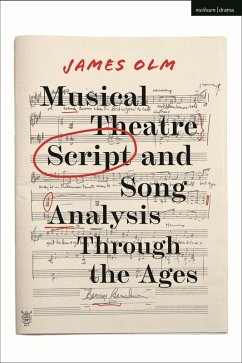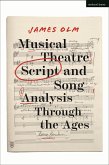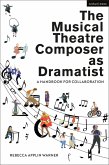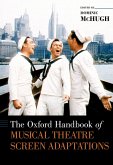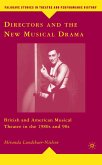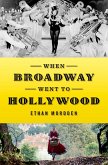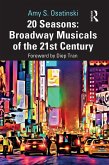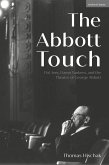How many times have you experienced a musical that was fabulous or just didn't work at all, but you had no idea how to communicate why? How do you differentiate between a flaw in the performance portrayal of a character to a structural flaw in the musical itself? How do you analyse musical theatre songs that are so subjective in its very nature? Is there even a common link of analysis between musicals from the Golden Age and musicals from the present day?
Musical Theatre Script and Song Analysis Through the Ages answers these questions and gives students of musical theatre the tools they need to understand and articulate how musicals work.
At the heart of any musical lie its music and lyrics, yet it is this area that is least understood. This book offers a brand new terminology of analysis that gets to the core of what holds a musical together: the libretto, music, and lyrics. Through identifying methods of lyric and musical analysis and applying these to ten different musicals throughout history, students are able to ask questions such as: why does this song sound this way?; what is this lyric doing to identify character purpose?; and how is a character communicating this feeling to an audience?
From classroom analysis through to practical application, this text guides readers through a structured approach to understanding, disseminating and more importantly, articulating how a musical works. A perfect tool for students of musical theatre, its practical benefits of understanding the form, and realizing that it can be applied to any age musical, will benefit any theatre person in helping articulate all of those abstract feelings that are inherent in this art form. It offers a roadmap to the musical's innermost DNA.
Musical Theatre Script and Song Analysis Through the Ages answers these questions and gives students of musical theatre the tools they need to understand and articulate how musicals work.
At the heart of any musical lie its music and lyrics, yet it is this area that is least understood. This book offers a brand new terminology of analysis that gets to the core of what holds a musical together: the libretto, music, and lyrics. Through identifying methods of lyric and musical analysis and applying these to ten different musicals throughout history, students are able to ask questions such as: why does this song sound this way?; what is this lyric doing to identify character purpose?; and how is a character communicating this feeling to an audience?
From classroom analysis through to practical application, this text guides readers through a structured approach to understanding, disseminating and more importantly, articulating how a musical works. A perfect tool for students of musical theatre, its practical benefits of understanding the form, and realizing that it can be applied to any age musical, will benefit any theatre person in helping articulate all of those abstract feelings that are inherent in this art form. It offers a roadmap to the musical's innermost DNA.

